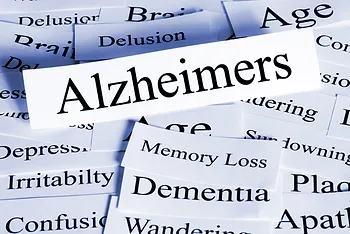Memory Loss Isn’t Necessarily Dementia. If a loved one is experiencing some troubling memory problems, you might immediately conclude that it’s dementia. However, a person needs to have at least two types of impairment that are significant enough to interfere with everyday life to be considered a dementia diagnosis.

In addition to difficulty remembering, the patient may also experience impairments in language, communication, focus, and reasoning.
Subtle Short-Term Memory Changes Trouble with memory can be an early sign of dementia. The changes are often subtle and tend to involve short-term memory. Your relative may be able to remember years past, but not what they had for breakfast. Other signs of changes in short-term memory include forgetting where they left something, struggling to remember why they went into a particular room, or forgetting what they were supposed to do on any given day.
Difficulty Finding the Right Words Another early sign of dementia is struggling to communicate thoughts the way you want to. This may mean that a person can’t seem to explain things. They may reach for the right words, but just can’t seem to grasp them. Conversations with an elderly parent who has dementia can become difficult and take longer than usual to conclude.
Changes in Mood Changes in mood are also common with dementia. It isn’t always easy to recognize this aspect of dementia in yourself, but it’s easy to notice in a loved one. Depression, for instance, is typical of early dementia. Along with mood changes, you might also see a shift in personality. One typical type of personality change seen with dementia is a shift from being shy to outgoing. This is because judgment is often affected.
Apathy A common symptom of early dementia is a listlessness or apathy. You might notice that your elderly loved one is starting to lose interest in hobbies or activities. They may not want to go out anymore or to do anything fun. They may be losing interest in spending time with friends and family and may seem emotionally flat.
Difficulty Doing Normal Tasks A subtle shift in the ability to complete normal tasks may indicate an early sign of dementia. This usually starts with difficulty doing more complex things like balancing the checkbook or playing games that have a lot of rules. Along with the struggle to complete familiar tasks, you may notice your loved one struggling to learn how to do new things or follow new routines.
Confusion Someone in the early stages of dementia may often show signs of confusion. When memory, thinking, or judgment lapses, confusion arises as your loved one can no longer remember faces, find the right words, or interact with people normally. Confusion can occur for a number of reasons. For example, missing car keys, forgetting what comes next in the day, or trying to remember who someone is.
Difficulty Following Story lines If you notice that your elderly loved one has a hard time following story lines, it may be due to early dementia. Just as finding and using the right words becomes difficult, people with dementia also sometimes forget the meanings of words they hear. Struggling to follow along with conversations or TV programs is a classic early warning sign.
A Failing Sense of Direction Sense of direction and spatial orientation is a common function of thinking that starts to deteriorate with the onset of dementia. This can mean not recognizing once-familiar landmarks and forgetting regularly used directions. It also becomes more difficult to follow series of directions and step-by-step instructions.
Being Repetitive Repetition is common in dementia because of memory loss and general behavioral changes. You might notice your elderly parent or loved one repeat daily tasks like shaving or collecting items obsessively.
They also may repeat the same questions in a conversation after you’ve already answered them.
Struggling to Adapt to Change For someone in the early stages of dementia, the experience is frightening. Suddenly they can’t remember people they know or follow what others are saying. They can’t remember why they went to the store and get lost on the way home. Because of this, they might crave routine and not want to try new things. Having difficulty adapting to changes is a typical sign of early dementia.
**Taken directly from globallovecare.com

